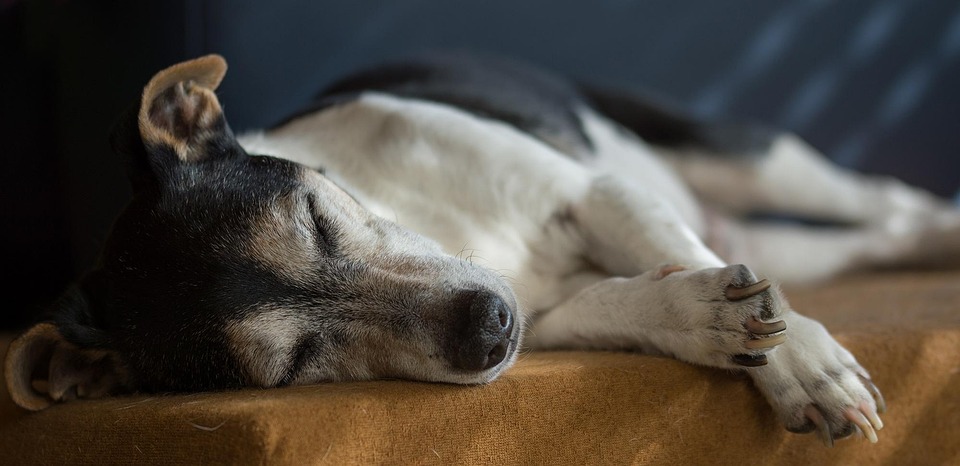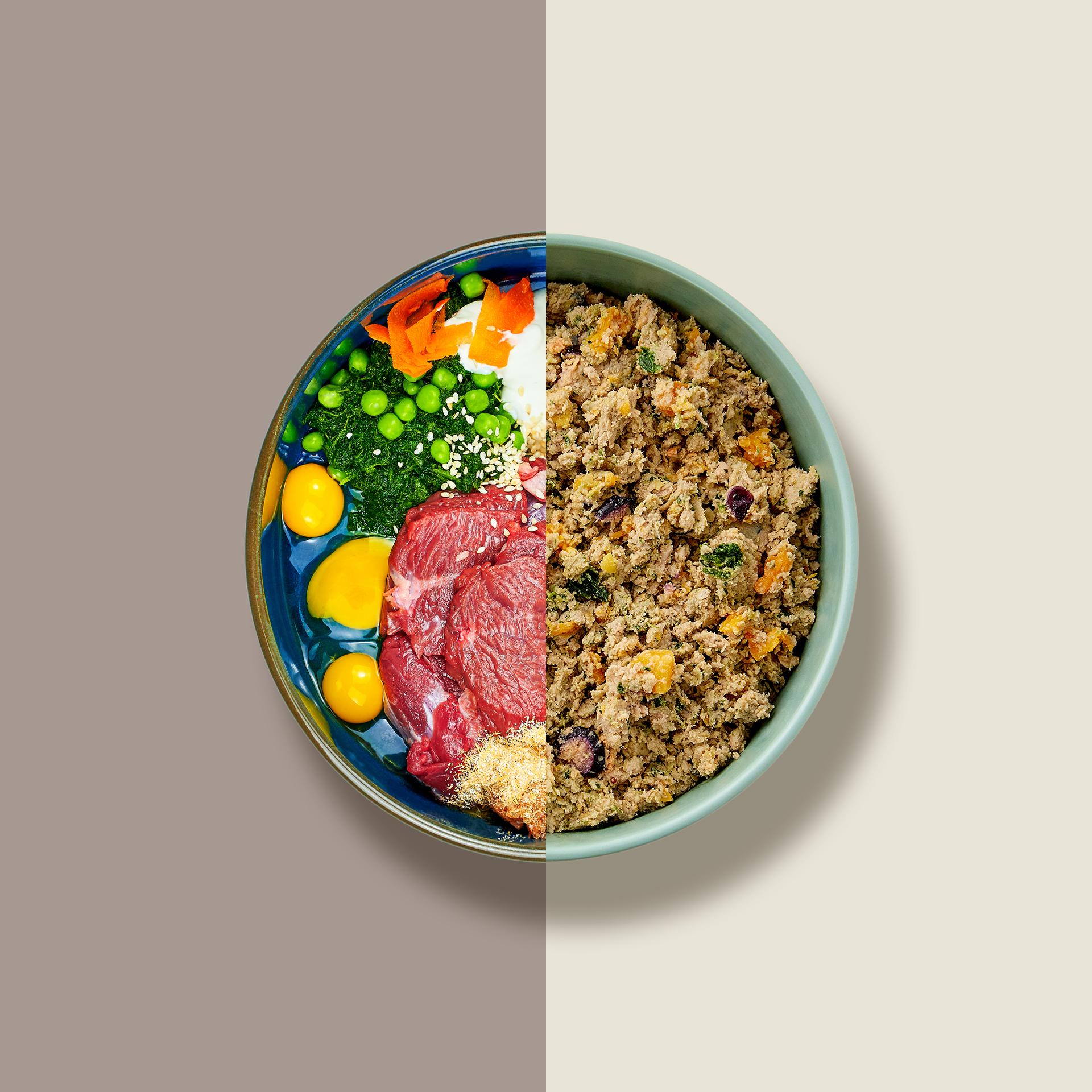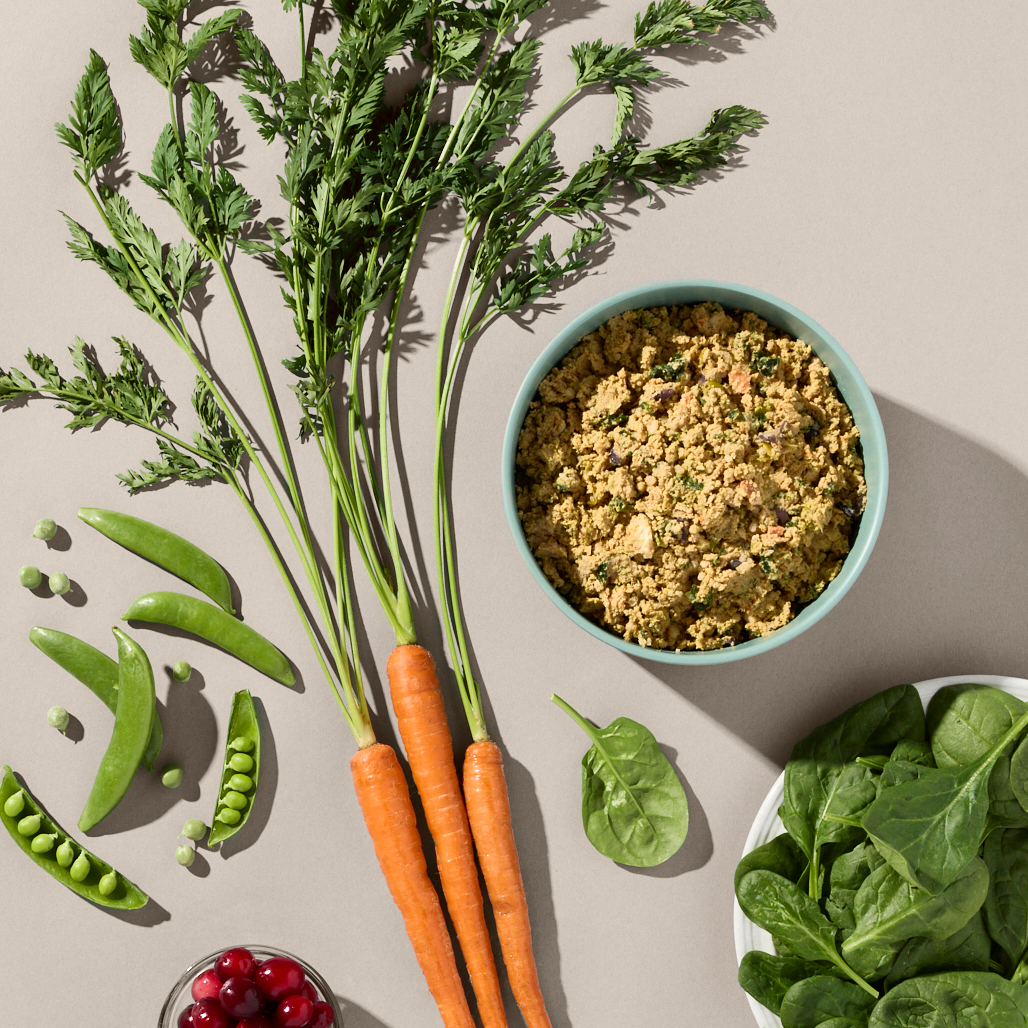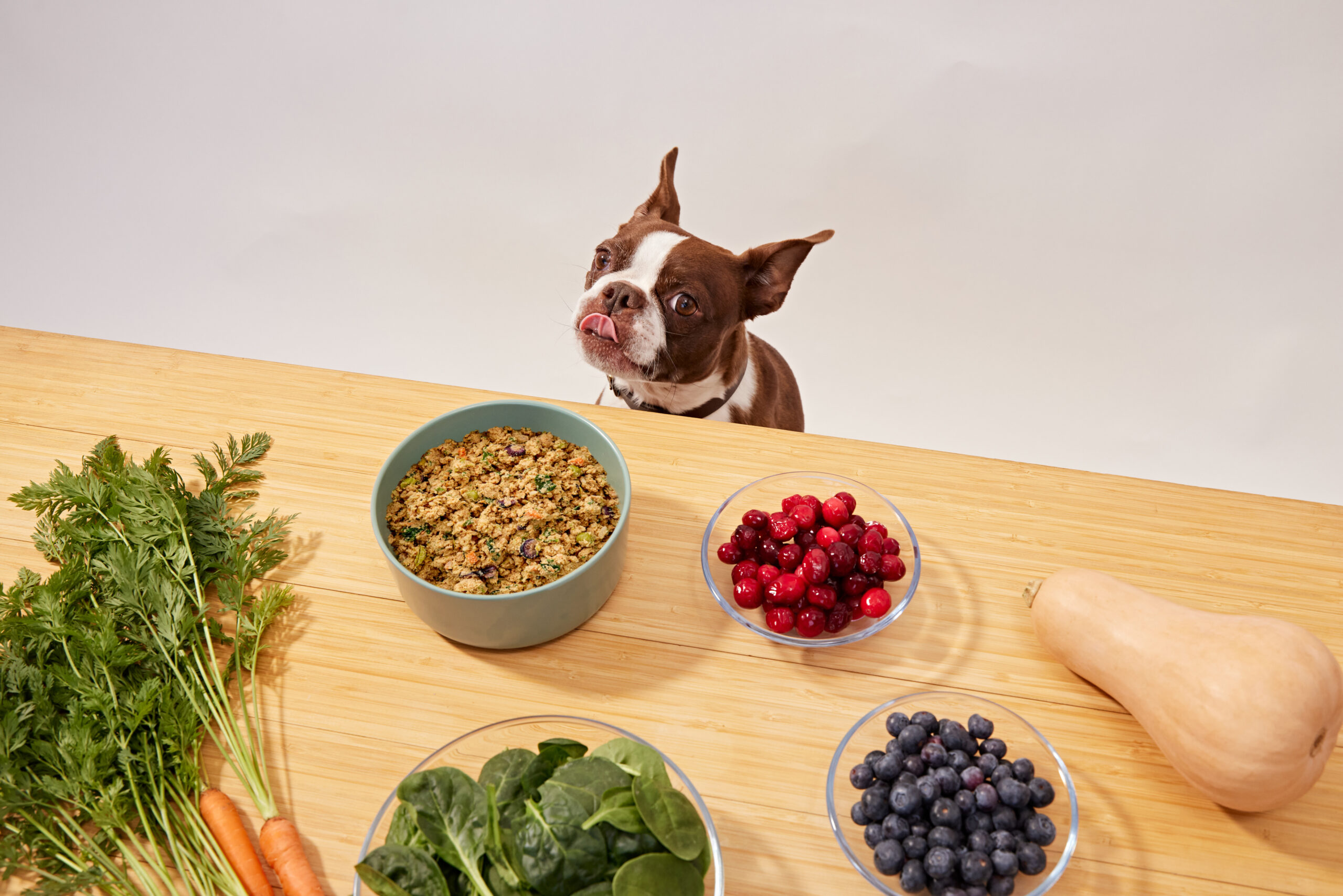Hey Ollie blog readers! We’re offering you an exclusive 60% OFF your starter box! Try now!
You thought the days of cleaning up poop in the house were behind you. But now, your older dog—who’s been reliably house-trained for years—is suddenly having accidents on the rug, in the hallway, maybe even right in front of you.
It’s confusing. It’s frustrating. And more than anything, it’s worrisome.
If your older dog is pooping in the house, you’re not alone. This is a common issue among senior dogs, and it’s not about bad behavior or laziness. In most cases, it’s your dog’s way of signaling that something’s not quite right—physically, mentally, or emotionally.
In this article, we’ll break down:
- Why senior dogs start pooping indoors
- How to figure out if it’s medical or behavioral
- What you can do at home to manage accidents
- When to call your vet
- How better nutrition can support bowel regularity in aging dogs
You’ll also learn how Ollie fresh, gently cooked meals can help support digestive health and reduce potty problems, by giving your dog what their aging body actually needs.
Let’s start by looking at what might be happening behind the accidents.
Why Senior Dogs Start Pooping Indoors: Common Causes
When a senior dog starts pooping in the house, it usually means something has changed—either in their body or in their environment. It’s not about stubbornness. It’s not payback. It’s about function, confusion, or discomfort.
Here are the most common reasons this happens:
1. Loss of Bowel Control
As dogs age, the muscles that help them “hold it” can weaken. This includes the anal sphincter, which may not be as responsive as it once was. Older dogs may simply not realize they’re going until it’s too late.
2. Cognitive Decline (Dog Dementia)
Canine cognitive dysfunction (similar to dementia in humans) can cause confusion, disorientation, and changes in potty habits. Your dog might forget where the door is—or even forget that they’re supposed to go outside.
3. Limited Mobility
Arthritis or joint pain can make it harder for dogs to get up, move around, or let you know they need to go. Some may avoid stairs or longer walks, which increases the chance of accidents inside.
4. Underlying Health Conditions
Illnesses like inflammatory bowel disease (IBD), colitis, diabetes, or even certain cancers can lead to irregular or urgent bowel movements. These conditions are more common in elderly dogs and often develop slowly over time.
5. Digestive Upset or Poor Diet
Low-quality or hard-to-digest food can cause irregular stools or increase urgency—especially in aging dogs. A diet high in fat or full of fillers can push the digestive system out of balance.
As your dog ages, their needs shift. So should their care. With a little patience, the right support, and adjustments to their routine and nutrition, most senior dogs can get back on track.
Medical Issues That Can Cause House Soiling in Elderly Dogs
If your elderly dog is pooping in the house, there’s a good chance something medical is going on. Many age-related health issues can impact bowel control, and often the signs are subtle—until accidents start happening.
Here are some of the most common medical reasons older dogs lose control over their bowels:
1. Canine Cognitive Dysfunction (Doggy Dementia)
Older dogs may forget house training, struggle to find the door, or become disoriented in familiar spaces. If your dog is wandering at night, pacing, or staring at walls, cognitive decline could be part of the issue.
2. Arthritis or Mobility Issues
Painful joints can make it hard for your dog to get up quickly or walk to the door in time. Some dogs avoid stairs or slippery floors, which leads to holding it too long—or not at all.
3. Fecal Incontinence
This can result from nerve damage, spinal conditions, or general muscle weakening. Dogs may pass stool without realizing it, especially during sleep or after movement.
4. GI Conditions
Conditions like inflammatory bowel disease (IBD), colitis, or parasites can cause loose stools, urgency, and frequency. These issues are more common in aging dogs with sensitive stomachs or a history of digestive problems.
5. Medication Side Effects
Some common senior dog medications (like steroids, pain meds, or antibiotics) can affect the gut or lead to looser stools. If your dog started pooping indoors after a new prescription, mention it to your vet.
Ruling out or addressing medical issues is the first step toward solving the problem. Once you’ve checked those boxes, it’s easier to focus on management strategies and creating a routine that supports your dog’s comfort and dignity.
How to Tell If It’s Medical or Behavioral
When your senior dog poops in the house, your first question is often: Is this a health issue or just something behavioral? The truth is, it could be both.
But there are ways to spot the difference.
Signs It’s Likely Medical:
- The accidents happen suddenly after years of being house-trained
- Your dog doesn’t seem to realize they’re pooping
- You notice loose stool, mucus, or blood
- Accidents happen even during sleep or rest
- Your dog is showing other symptoms (like weight loss, lethargy, or vomiting)
- The issue began shortly after starting a new medication
Signs It Might Be Behavioral or Cognitive:
- Your dog paces, circles, or acts confused before or after pooping
- Accidents happen in the same place or at the same time of day
- They seem unsure of where the door is
- They still control bowel movements sometimes, but not always
- There’s no change in stool consistency
Track the Patterns
Start a simple log with:
- Time of day accidents happen
- Location in the house
- Type of stool (firm, loose, urgent)
- Recent changes (food, stress, schedule, medications)
- Other symptoms you’ve noticed
This log can help your vet determine if it’s more likely a medical issue, a cognitive change, or both. It also helps track progress as you make changes to diet, routine, or medications.
Knowing what’s behind the behavior helps guide the best next steps—whether that’s a vet visit, a food change, or a new potty routine.
Speaking of routines, let’s talk about how you can manage this at home and keep your dog (and your floors) more comfortable.
Home Strategies to Manage and Prevent Accidents
If your older dog is pooping in the house, it can feel overwhelming—but there’s a lot you can do to help. Whether the cause is medical, cognitive, or just part of the aging process, these strategies can reduce stress for both of you.
1. Increase Bathroom Breaks
Senior dogs may need to go more frequently, even if they never used to. Try adding extra potty breaks throughout the day, especially:
- First thing in the morning
- Shortly after meals
- Before bed
Consistent timing helps older dogs stay on track and can reduce accidents from urgency.
2. Make Potty Access Easier
If mobility is an issue, set your dog up for success:
- Keep their main living area close to an exit
- Add a ramp if stairs are a barrier
- Use doggy doors or pee pads if getting outside quickly isn’t always possible
3. Adjust Feeding Schedule
Feeding your dog at consistent times helps regulate their bowels. For many older dogs, two smaller meals (instead of one large one) can make digestion easier and reduce urgency.
4. Create an Accident-Resistant Space
If your dog is having frequent accidents:
- Use washable rugs or waterproof pads
- Keep clean-up supplies close by
- Consider dog diapers or belly bands for overnight protection
These tools aren’t permanent fixes, but they can make life more manageable while you work on the underlying issue.
5. Stay Calm and Consistent
Never punish your dog for accidents. They’re not doing it out of spite. In fact, punishment can increase anxiety—which makes the problem worse.
Use gentle redirection, lots of praise when they go outside, and routines that reduce confusion.
With structure, patience, and the right support, your dog can still have a clean, comfortable life, even if they’re not as sharp or spry as they used to be.
Nutritional Support for Bowel Regularity
If your senior dog is pooping in the house, what they’re eating may be part of the problem, or part of the solution.
As dogs age, their digestive systems become more sensitive. They may not tolerate certain ingredients as well, and even foods they’ve eaten for years can suddenly cause issues like loose stools, urgency, or discomfort.
Why Nutrition Matters More for Older Dogs
- Lower enzyme production: Older dogs may not digest fats or proteins as efficiently.
- Weakened gut microbiome: A less diverse gut flora can affect how smoothly food moves through the system.
- Slower metabolism: This impacts everything from stool consistency to frequency.
Feeding the right food can help regulate bowel movements and make it easier for your dog to “go” at consistent times, and in the right place.
What to Look for in Food for Senior Dogs
- Gently cooked proteins that are easy to digest
- Moderate fiber to support stool consistency
- Moisture-rich meals that promote hydration
- No artificial fillers or high-fat content that can upset the gut
That’s why so many pet parents switch to Ollie as their dogs age. Our recipes are made with limited ingredients, gently cooked for easy digestion, and free from the preservatives that can trigger digestive trouble.
Each meal is personalized to your dog’s age, weight, and health goals, so you know they’re getting exactly what their aging body needs.
When to Talk to Your Vet
If your senior dog keeps pooping in the house, and the issue isn’t improving with routine changes or dietary adjustments, it’s time to loop in your vet.
Even if the accidents seem minor, it’s better to rule out a medical issue than wait for things to get worse.
Signs It’s Time for a Vet Visit:
- Accidents are happening frequently or getting worse
- Your dog doesn’t seem to realize they’re going
- Stool is loose, bloody, or contains mucus
- Your dog is also vomiting, losing weight, or acting lethargic
- There’s a sudden change after starting a new medication
- Your dog is showing signs of confusion or disorientation
What to Bring to Your Appointment:
- A simple log of when and where the accidents occur
- Any changes in food, treats, routine, or supplements
- A stool sample, if possible
- Photos of unusual stools (if cleanup didn’t allow for a sample)
Your vet may recommend:
- Blood work or fecal testing
- A neurological exam
- Diet changes or prescription food
- Imaging to rule out internal issues
- Medication to support gut health or cognition
You don’t have to figure it out alone. Your vet can help get to the root of the problem—and help you build a plan that works for your dog’s needs today and in the months to come.
FAQs About Senior Dogs Pooping in the House
Is it normal for an older dog to start pooping inside?
It’s not uncommon, but it’s not “just part of aging” either. Accidents usually point to a medical, cognitive, or digestive issue that needs attention. Always check with your vet if the behavior is new or increasing.
Can dementia cause an elderly dog to poop indoors?
Yes. Canine cognitive dysfunction (doggy dementia) can lead to confusion, forgetfulness, and house soiling—even if your dog was perfectly trained before.
How can I stop my senior dog from pooping in the house?
Start by identifying the cause. Work with your vet to rule out health issues, adjust their potty routine, and consider switching to a highly digestible diet like Ollie fresh meals, which can help regulate digestion.
What’s the best food for older dogs with poop issues?
Look for food that is gently cooked, moisture-rich, and free from fillers. Recipes like Ollie are designed to be easy on senior stomachs and can help create more consistent bowel movements.
Is pooping in the house a sign that my dog is near the end of life?
Not necessarily. While increased accidents can be a symptom of serious illness, many senior dogs live happily and comfortably with the right care. The key is identifying what’s causing the issue and supporting them appropriately.
Tagged As:

The nutrition your dog needs,
the food they want.

Enjoying our articles? Subscribe our Newsletters and get new articles directly to your inbox
You might also like
12 August 2025
5 MINS READ
Raw vs. Gently Cooked: Which Is Ideal for Your Pup?
As more pup parents seek the best fresh dog food for their companions, they may find themselves choosing between a raw diet and a fresh diet. While cases have been made for both options, let’s exa…
by Ollie Pets
12 August 2025
5 MINS READ
Why Human-Grade Ingredients Matter for Your Dog
A healthier, happier dog starts with the right food. That said, knowing which diet is best for your pup can be overwhelming at times. Understanding what human-grade means, why it matters, and how …
by Ollie Pets
12 August 2025
7 MINS READ
Spotlighting the Top Nutrients for Your Dog
Just like humans, your dog’s health depends heavily on the food they consume daily. Read on to learn more about essential nutrients for your dog’s health and explore how fresh, human-grade dog foo…
by Ollie Pets







